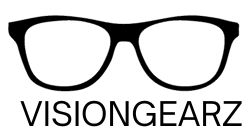Don't miss our holiday offer - up to 50% OFF!
Blue Light Blocking Glasses vs. Computer Glasses: What’s the Difference?
Various screens dominate our daily lives, so eye strain and discomfort have become common issues for people. To combat these problems, many turn to eyewear solutions like blue light blocking glasses and computer glasses. While often used interchangeably, these two types of glasses have distinct features and benefits. In this article, we’ll delve into the differences, exploring which might be the best fit for your needs.
Blue Light Blocking Glasses: A Closer Look
What Are Blue Light Blocking Glasses?
Blue light blocking glasses are designed to filter out blue light from digital screens, LED lights, and other sources. Blue light, part of the visible light spectrum, disrupts sleep patterns and contributes to eye strain and fatigue.
Features
- Lens Coating: The lenses have a special coating that blocks or absorbs blue light.
- Color Tint: Often, these glasses have a slight yellow or amber tint to counteract blue light.
- Variety: Available in prescription, non-prescription, and even clip-on styles for existing eyewear.
Benefits
- Reduces Eye Strain: By filtering blue light, these glasses help alleviate discomfort associated with prolonged screen use.
- Improves Sleep Quality: Limiting blue light exposure, especially before bedtime, can help maintain natural sleep cycles.
- Protects Eye Health: Reducing blue light exposure can prevent potential long-term damage to the retina.
Ideal Users
- Night Owls: Those who use screens late at night and struggle with sleep.
- Gamers: Individuals who spend extended hours gaming.
- Office Workers: People who work on computers all day.
Examples and Brands
- Gunnar Optiks: Known for their high-quality blue light blocking lenses and ergonomic designs.
- Felix Gray: Offers stylish options that combine blue light protection with fashion.
- Cyxus: Provides affordable blue light blocking glasses with various styles and colors.
Computer Glasses: A Comprehensive Overview
What Are Computer Glasses?
Computer glasses are designed to reduce eye strain and fatigue from prolonged computer use. While they may include blue light blocking features, their primary goal is to enhance overall visual comfort and clarity at intermediate distances (20-26 inches from the eyes).
Features
- Anti-Reflective Coating: Reduces glare from screens and overhead lighting.
- Contrast Enhancement: Tints or coatings that improve screen contrast.
- Slight Magnification: Some computer glasses offer a small degree of magnification to reduce squinting and improve focus.
Benefits
- Reduces Digital Eye Strain: Helps to alleviate symptoms like dry eyes, headaches, and blurred vision.
- Improves Visual Comfort: Enhances the clarity and contrast of the screen, making it easier to view for long periods.
- Minimizes Glare: Anti-reflective coatings help reduce the glare from digital screens and ambient light.
Ideal Users
- Office Professionals: Those who spend most of their workday in front of a computer.
- Students: Individuals engaged in extensive reading or studying on digital devices.
- Remote Workers: People who work from home and use multiple screens.
Examples and Brands
- Gunnar Optiks: Offers a range of computer glasses with blue light blocking and anti-reflective coatings.
- Pixel Eyewear: Known for stylish frames and lenses that reduce eye strain.
- J+S Vision: Provides affordable options that combine blue light blocking and anti-glare features.
Comparing the Two: Key Differences and Similarities
Differences
- Specialization: Blue light blocking glasses specifically target blue light, while computer glasses focus on overall visual comfort.
- Lens Technology: Computer glasses often include additional features like anti-reflective coatings and magnification, which might not be present in all blue light blocking glasses.
- Usage Scenarios: Blue light blocking glasses are particularly beneficial for nighttime use and extended screen time, whereas computer glasses are tailored for daily, long-term computer use.
Similarities
- Purpose: Both aim to reduce eye strain and discomfort from digital screen exposure.
- Design: Available in a variety of styles, including prescription and non-prescription options.
- Marketed Towards: Individuals experiencing digital eye strain and those who spend significant time on screens.
How to Choose the Right Glasses for You
When deciding between blue light blocking glasses and computer glasses, consider the following factors:
- Screen Time: Assess how many hours you spend on digital devices daily.
- Usage Time: Determine if you primarily use screens during the day or night.
- Specific Needs: Identify whether your primary concern is blue light exposure or overall visual comfort and clarity.
Making an Informed Choice for Your Eye Health
When it comes to reducing digital eye strain, both blue light blocking glasses and computer glasses offer valuable benefits. However, they cater to slightly different needs. Blue light blocking glasses are ideal for those focused on mitigating blue light exposure, particularly during nighttime screen use, to improve sleep and reduce eye strain. Conversely, computer glasses are better suited for those seeking comprehensive visual comfort and clarity during prolonged computer use throughout the day. Brands like Gunnar Optiks, Felix Gray, and Pixel Eyewear provide a range of options that can cater to these diverse needs.
By understanding the unique features and benefits of each type of eyewear, you can make an informed decision to protect your eyes and enhance your digital experience. Whether you’re a night owl, an office professional, a gamer, or a student, there’s a pair of glasses designed to meet your specific needs. Choose wisely to ensure your eye health and comfort while navigating the digital world.
